Rethinking Scholarships
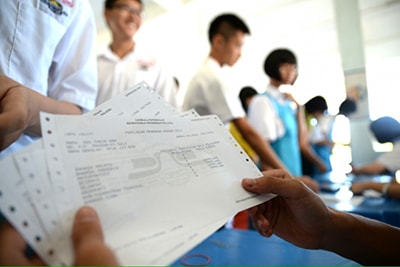
By Pavithran Ilangko
Stay updated with the latest intriguing stories on education pathways, career development, special insights, exclusive interviews, KYSER & KYS news and moreby following our Telegram channel here.
I speak for many when saying humans are brutal overall. Nonetheless, I will diminish the scope to the humans we are, who generally find no necessity in helping our sisters in Sub-Saharan Africa or brothers in Yemen. Surely, many come up with justifications to why someone else’s suffering isn’t our problem. One argument that caught my attention was that “we are not the cause of their suffering; hence we play no role in solving it”. It comes across as a basic argument, so let’s take its response to a slightly complex level.
Poverty proliferates. With the introduction of programs and welfare, statistics emphasize the increase in material accessibility of low-income groups. Yet, the question rarely seen as prevalent is the comparison between growth rates of people stuck in the realms of poverty and those in socioeconomic superiority. An economy is an ecosystem. Ever heard of how “the rich get richer, and the poor get poorer”? The ecosystem in and of itself being driven by profit inclined motives ostracizes groups incapable of keeping up with its pace.

Education, for instance, is the conspicuous escape route for people living in poverty, the step closer to income stability. However, the reality of education in disadvantaged communities fall upon their lack of school funding, lack of teachers posted, low dropout age, low enrolment in schools and digital inequality. In contrast, while students from disadvantaged groups struggle to turn their single Chromebook shared by 8 students on, schools in cities assimilate programming into their syllabi. The exponential growth curve for education is barely one mutually exclusive to people not enrolled in the well-funded schools of Malaysia.
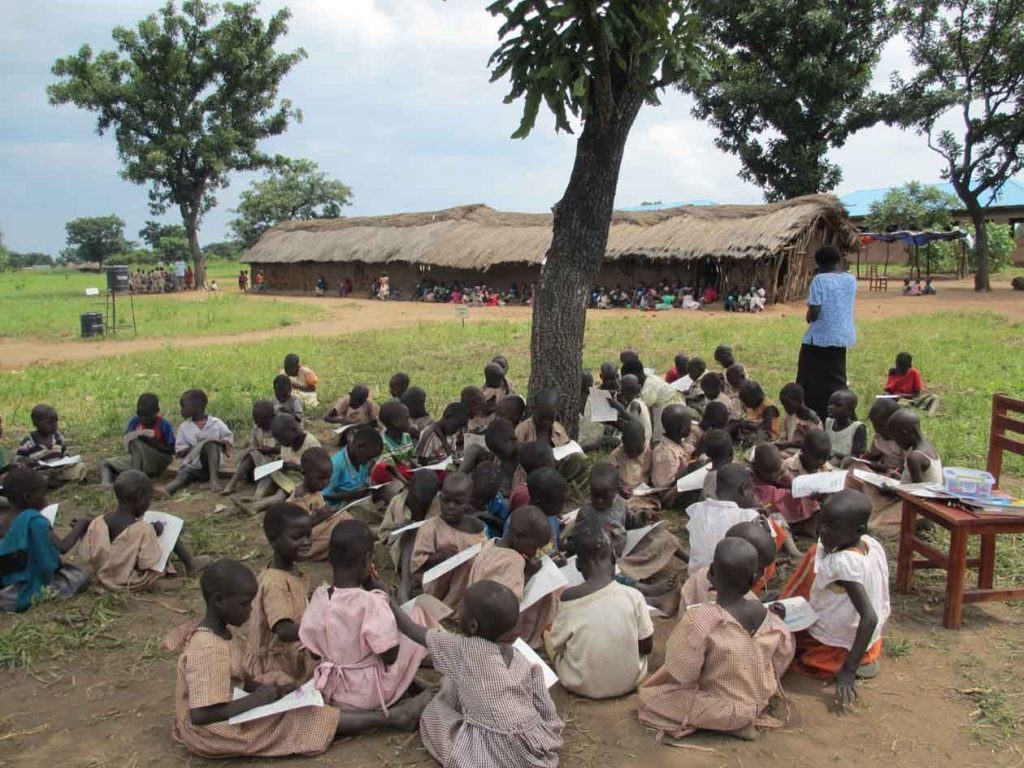
Children learning without a proper classroom 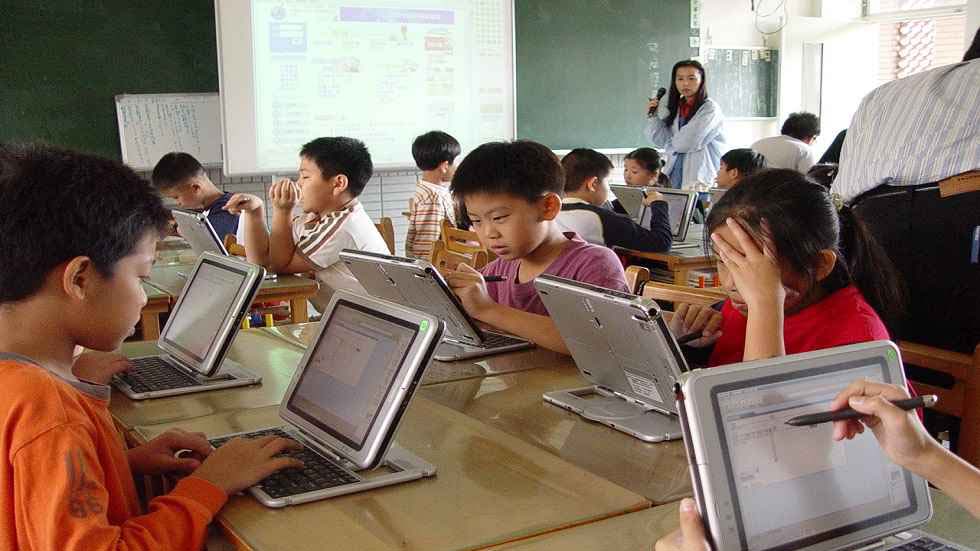
Children learning with individual laptops
By the same token, as of many institutions, schools highly romanticise the scholarship system in Malaysia. A post-SPM scholar often gets heroized and put on a pedestal, held high with pride. To clarify, scholarships were introduced to aid talents who would not have been able to afford their higher education. Yet, the toxic perception towards scholarships has evolved to become a mere reward for those with flaunt-able attributes. Why is that a problem?
Disadvantaged people, who intrinsically and morally deserve such scholarships, have lesser to flaunt. A student from Kampung Numbak who studied five times more than one who had an exam-expert private tutor would not have obtained his A+ for Additional Mathematics anyway. That same student who read articles and studied world issues would not have been exposed to a debate tournament to list in his resume either.
More disappointingly, students imposed with the target of obtaining a scholarship even reach extremes of giving up initial dreams of becoming a psychiatrist just so that their parents can say “My daughter is a Bank Negara Scholar”. Though, the first issue to discuss should be the inherent purpose of a financial aid or scholarships. The second issue should be the necessity of a scholarship for someone who is already capable of funding their education whether locally or abroad.

The notion of scholarships being esteemed has already brought people to extents of modifying income statuses and embracing loopholes just so that they can apply for income-based scholarships such as Yayasan Sime Darby or YTL. “The fight for survival” was something people openly accepted, and I truly agree. Yet morals aside, is it even human for someone privileged and well-equipped to sham their way into the league of people who had it worse? I call it stealing from the poor.
The question then becomes, why is it our fault that people suffer? Simply put, it is not. It is our fault that people continue to suffer. We hold to ourselves the financial capacity to not only provide aid for brothers and sisters around us, but also the accessibility to send members of various struggling communities around the world said aid. Yet, we choose to disregard the ideals of effective altruism, a term coined by Peter Singer; who also explained charity with an oversimplified analogy.
Editor: “So what is your purpose of writing this article?”
Firstly, no. I am not imposing that you should not apply for scholarships. Instead, detach yourself from the exaggerated perception towards scholarships. Follow your dreams and have personal goals, success is defined by yourself and not who you’re bonded to. As for equality, ensure that you only apply for needs-based scholarships if you fall into such categories. There is no pride in Usain Bolt winning an U-18 race. If anything, there is shame.
Secondly, I would like to urge the community to push for more charity events. Youths have always been active in promoting social awareness, and I truly hope more of us push for activities and fund-raisers.
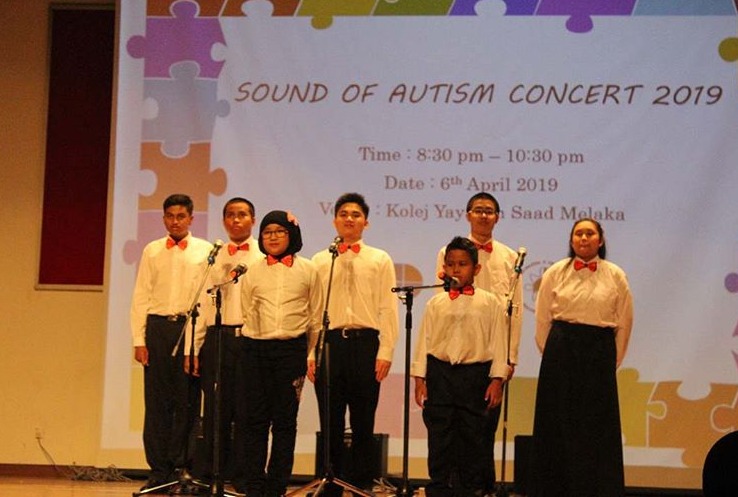
A public request from me:
I hope more people would promote the United Nations’ mobile app called “ShareTheMeal” which is currently available on both Android and IOS platforms. To first clarify, I have no affiliations with the application at all. I would like the public to realize how easy it is to feed a child with just RM 2 (cheaper than a Cremeria in the café!)

ShareTheMeal App 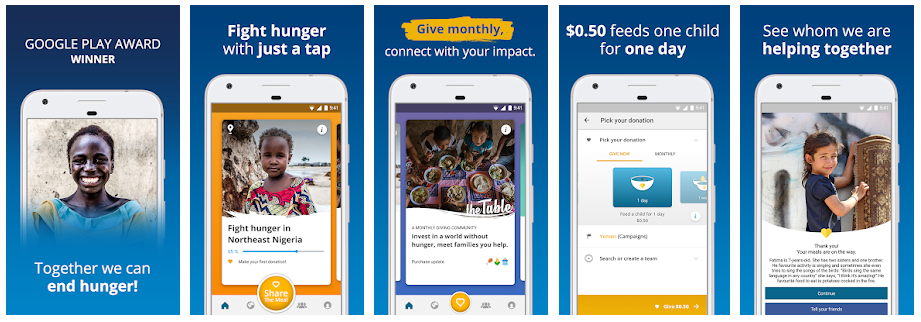
ShareTheMeal App Screens
Additionally, we should move forward as a socially aware and moral community by introducing traditional fundraising events not only for the community but also communities in need all around Malaysia. A great start would be aiding struggling families during the pandemic, and a greater target could be introducing our own income-based scholarships for enrolment in KYS.
Maybe it is true that our hard work brought us to where we are. Perhaps it is also true that privilege has always been God’s plan for many. But the truest of all is the ability for anybody to save a life, because the value of our life is the value that lies beneath our hearts – humanity.
The views expressed are those of the author and do not necessarily reflect those of Kolej Yayasan Saad or Cemerlang.







